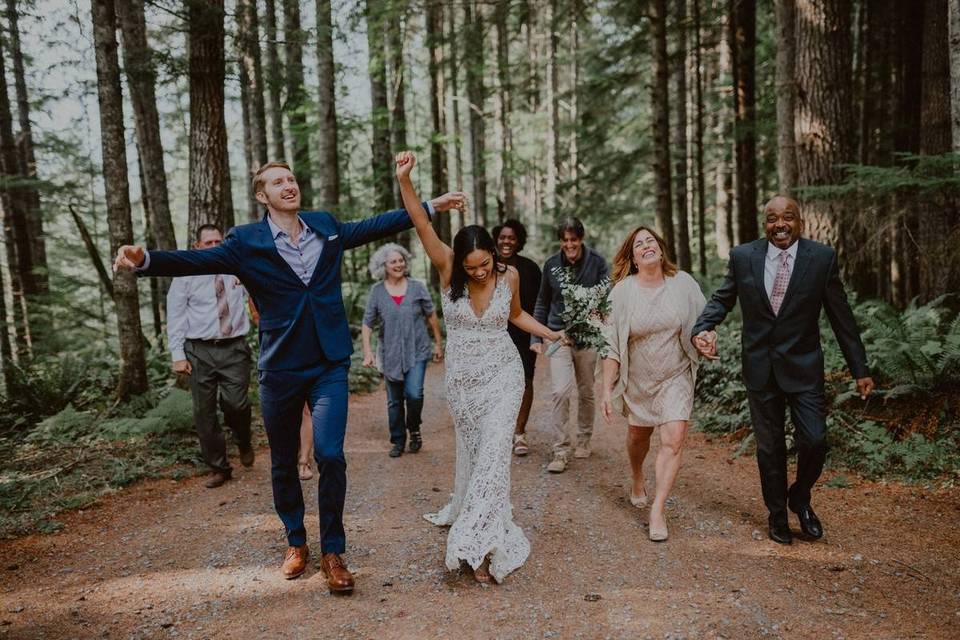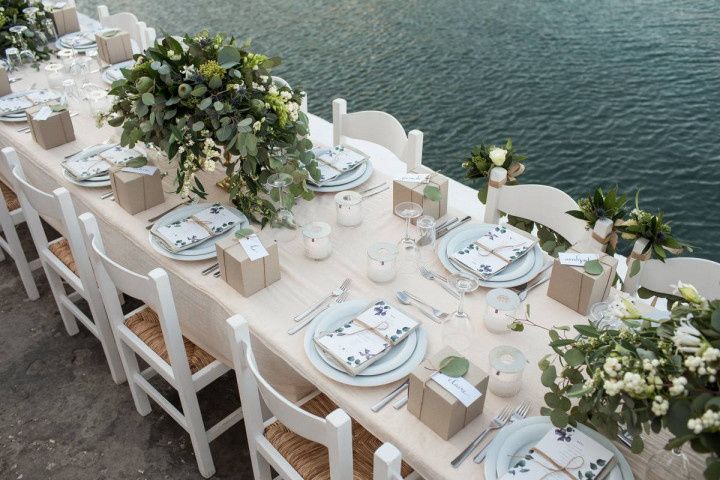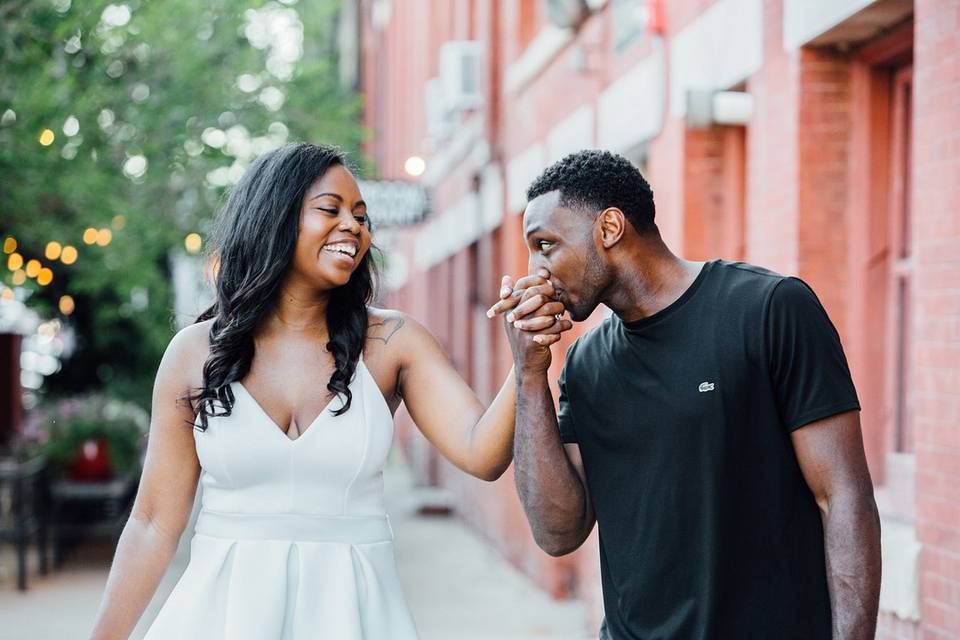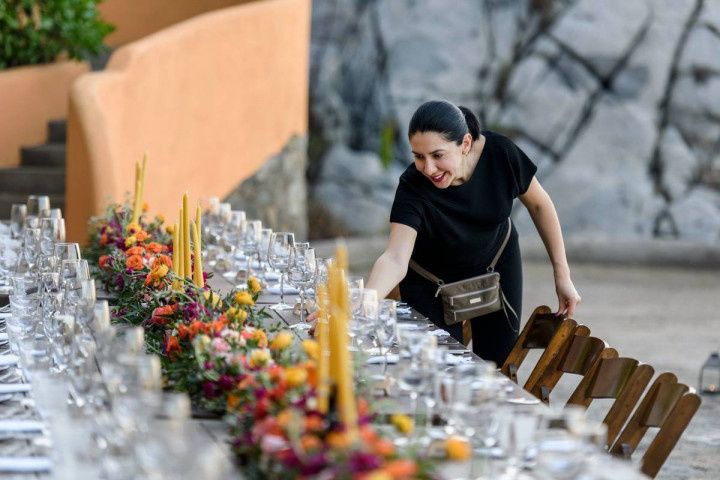7 Types of Weddings to Consider If You Want Something Small
Microwedding, minimony, virtual wedding—what’s the difference? Here, we go deep into all the types of weddings that you’re going to see more of post COVID.

Whether you’ve always wanted to have a small wedding or have recently changed your tune about having a big wedding as a result of the coronavirus pandemic, you’re in good company. While large weddings might seem like a popular choice, many planners attest to the fact that plenty of their clients prefer to scale things down to a smaller type of wedding for a myriad of reasons.
For starters, small weddings are simply easier to plan. Considering that planning the average wedding is considered a “second full-time job,” having less stress placed on a couple in love is always a plus. Smaller weddings are also great because they give you more of an opportunity to actually spend time with your guests. “Smaller weddings are more intimate and allow for greater connection, which is so important,” notes Jamie Chang of Mango Muse Events in Los Altos, California.
Smaller weddings are also more cost effective, which can be especially beneficial for a couple hoping to make large purchases after their big day, like a house or a car. “Less guests mean fewer costs and, while this does not apply to everything for your wedding (like photography or music), there are many guest count-related items you have for your wedding that will benefit from a lower guest count,” says Chang. “Weddings can sometimes feel like a show, so for couples who are more introverted or just more private, having a smaller wedding is just more comfortable.”
If you do opt for a small wedding, one of the first things your planner is going to ask you is “how small?” and “what type of small wedding do you want to have?” Yep—turns out, there is more than just one kind of smaller wedding.
To help guide towards the right wedding for you, we asked planners to break down the details of each type of wedding.
A mini wedding
“A mini wedding, also called a tiny or petite wedding, is a lot like how we imagined weddings pre-COVID-19, but with no more than 50 guests (to adhere to the gathering regulations),” explains Janice Carnevale of Bellwether Events in Falls Church, Virginia. “The couple would still have a legal ceremony, followed by a cocktail reception, dinner, and then dancing might be limited to just the couple and their parents.”
A microwedding
A microwedding is even smaller than your average “small wedding,” with a guest count of 20 people or fewer. It’s like a regular wedding with all of the common features—a DJ, band, florist, you name it—except the guest list is just very small. This gives couples the wedding experience they’ve always dreamed of at a much lower price tag because there are so many fewer guests.
An elopement
Traditionally, elopements were considered something couples did on their own—in an escape-like fashion away from friends and family. Nowadays, elopements are more commonplace. They tend to involve more than just the couple—also a few guests, but usually no more than 10 people tops. “It's usually just the ceremony that takes place in terms of formal events, but can also include a simple reception consisting of a dinner,” says Chang. There’s much to consider when opting for an elopement, however, especially if it’s in a destination away from where the couple lives. “Elopements typically have a very short lead-time—days or weeks at most, which can be tricky if your courts are currently closed and you have no way to quickly obtain a marriage license.”
Minimony
Most professionals consider a minimony to be a novel concept, but a strategic one. “Essentially, a minimony is an elopement on steroids typically involving up to a dozen guests and focusing solely on the ceremony,” says Gretchen Culver of Rocket Science Events in Minneapolis, Minnesota. “This is gaining traction with couples postponing their wedding due to the pandemic and still want to have a large reception #marrynowpartylater.”
A popup wedding
This is a relatively newer type of wedding that involves more than just one couple. “A beautiful predetermined wedding setup is created on a set day and you pick your timeframe where you and your guests (typically 30 or less guests) would gather to witness your ceremony,” explains Chang. “You usually get a limited amount of time in the venue and then you have leave to make room for the next couple.” Although this is certainly not a lengthy affair, it can be ideal for couples looking to save on costs without sacrificing on quality.
Social distance wedding
The coronavirus pandemic has made it near-impossible for couples to carry out what is considered to be a “normal” wedding, where guests mingle and are in close proximity to one another. This has given way to the formation of what’s being considered a social distance wedding. “This is a combination of any of the smaller types of weddings plus a virtual wedding,” says Chang. “It allows for couples to have more guests in ‘attendance’ virtually without actually increasing the size of the wedding and number of people in person.”
Virtual wedding
This is the newest type of wedding and for obvious reasons. With a virtual wedding, all guests, including the couple, are in a virtual setting, which means they’re behind a computer screen usually in the comfort of their home but still “in attendance.” “It can just include a ceremony, which is what many DIY virtual weddings consist of, but there are now companies and services that help create an actual wedding day, just virtually,” says Chang. “The best part is that it's completely safe for you, your guests and your vendor team.”
Whichever type of wedding you have, remember to be patient and kind with yourselves during this difficult time. It’s not an easy time to get married, but no matter “how” you say “I do,” just remember what matters: that the love of your life is there at the other end of the altar.





